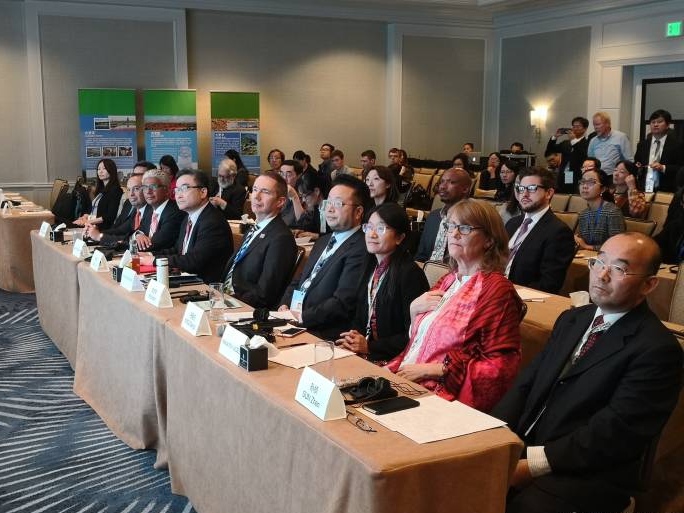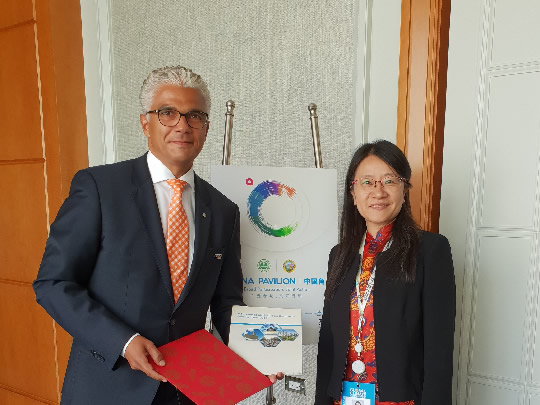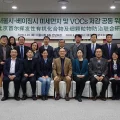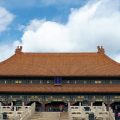Beijing’s 20 Years of Progress and Experience in Tackling Air Pollution Shared at the Global Climate Action Summit

The 2018 Global Climate Action Summit themed “Take Ambition to the Next Level”, was hosted on 12-14 September in San Francisco, California, the USA.
As a key partner of the summit, China’s national Ministry of Ecology and Environment organized the China Pavilion in collaboration with the State of California, as an affiliate event of the summit to showcase the country’s efforts in fighting against climate change. It brings together representatives of local governments, business leaders, research institutes, and international organizations of both countries to share their progress on climate actions.
Under this framework, the session “20 Years of Fighting Air Pollution in Beijing” was jointly organized by Beijing Municipal Environment Protection Bureau, UN Environment, California Environmental Protection Agency, ICLEI—Local Governments for Sustainability, Energy Foundation, and International Council for Clean Transportation at the China Pavilion, gathering over 100 Global Climate Action Summit delegates and international media.
During the past two decades, Beijing the metropolis has achieved several remarkable air quality goals without hindering economic growth, social benefits, and urban development, through air quality management and control.
Zhen Sun, deputy director-general of the Department of Climate Change of the Ministry of Ecology and Environment of China, stressed in his opening remarks that winning the “battle for blue skies” is one of the 3 key tasks China, with the new target being synergizing clean air and climate actions for implementation at the local level.
According to the Beijing Environmental Protection Bureau, through the implementation of regulations and programs, and learning from international experiences, the city has established a relatively sound air quality management system with local characteristics compared to the one used 20 years back, providing substantial support to the effective development and implementation of air pollution control programs.
Professor Kebin He, Academician of the Chinese Academy of Engineering and Dean of the School of Environment, Tsinghua University, gave a thorough introduction to the scientific assessment results of air pollution control measures taken in Beijing since 1998. According to him, sources of air pollutant in Beijing back in 1998 was a mixture of coal emissions and vehicle exhaust, with the concentrations of major indicator pollutants exceeding national standards. But after years of hard work, the annual average concentrations of CO, SO2, NO2, and PM10 have declined by 58%, 78%, 24%, and 42% respectively by 2013.
Between 2013 and 2017, air quality in Beijing improved at a more rapid pace, with an increase in good air quality days, a decrease in heavy pollution episodes, and a drastic reduction in major pollutant concentrations. During this period of time, the ambient concentrations of SO2, CO, NO2, PM2.5, and PM10 fell by 70.4%, 38.2%, 17.9%, 35.6%, and 22.2% respectively.
In tackling vehicle emissions, Beijing enacted the “Vehicle-Fuel-Road” integrated package, which is also playing a leading role in the country. The number of registered vehicles in the city has increased by 3 times during the past 20 years, while the total pollutant emissions from vehicles and absolute contribution from the sector have declined.
Furthermore, through the coordinated measures for air pollution control in Beijing-Tianjin-Hebei and Surrounding Areas, the concentrations of major pollutants in the area have declined synchronously, with Beijing having the most significant improvement.
Baoxian Liu, Deputy Director of Beijing Municipal Environmental Monitoring Center, gave a technical presentation on the establishment and operational experience of Beijing’s air quality monitoring system, as well as the R&D and application of big data and deep learning-based PM2.5 grid monitoring network using low-cost sensors.
“The Government of China has placed great emphasis on environmental protection in recent years and has fully demonstrated commitment and competence in winning the battle against pollution,” said Helena Molin Valdés, head of the Climate and Clean Air Coalition (CCAC) Secretariat. UN Environment has been working closely with Beijing in summarizing its 20 years of progress and experience in fighting against air pollution, hoping to share with other big developing cities towards the common goals of air quality improvement and greenhouse gas reductions.

Ashok Sridharan, Mayor of Bonn and President of ICLEI (left) and
Dengli Ming, Head of the International Cooperation Division, Beijing Environmental Protection Bureau
Ashok Sridharan, Mayor of the Federal City of Bonn and President of ICLEI-Local Governments for Sustainability expressed appreciation and congratulated Beijing’s achievements in air pollution control, and suggested the city share its best practices, policies, and technical experiences with cities around the world, including the 1500 cities within the ICLEI Network. Mayor Sriharan hopes to further cooperate with Beijing in the areas of air quality and low carbon development, towards the common goal of promoting global environmental governance.
Air quality improvement is strongly related to sustainability. As a global city network on sustainable development, cities and partners of ICLEI have been advocating and promoting global-local sustainability actions to combat with climate change and environmental depletion, and are ready to work in cooperation with Beijing through synergy with other topics. ICLEI’s experience, tools, and methodologies on green climate cities, EcoMobility, and urban resilience can support the city to realize its ambitions on climate and sustainable development goals.




